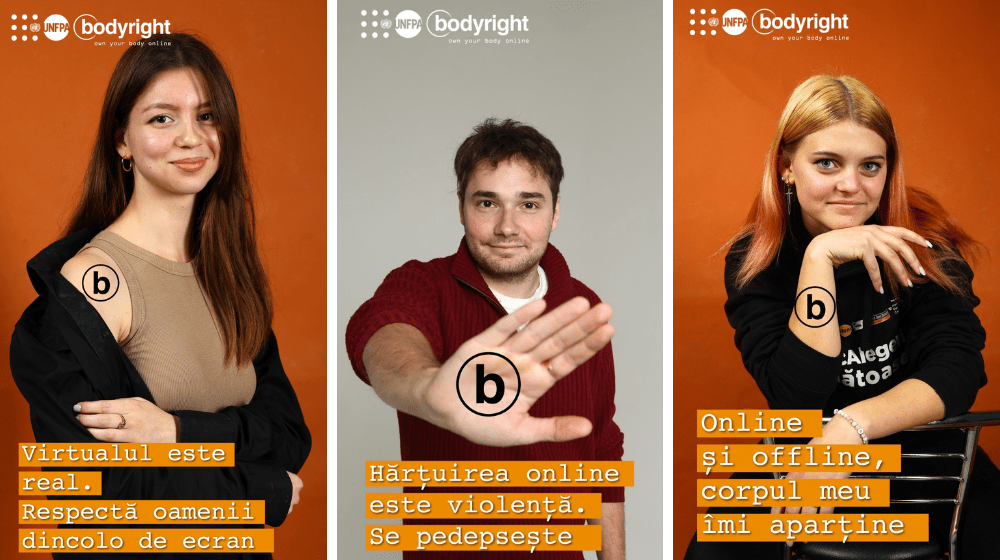In order to amplify the messages of the #bodyright campaign in the Republic of Moldova, several young volunteers from Youth Centers, the Peer Educators Network in technical vocational education, and the UN Youth Advisory Panel became active promoters of the campaign. Alongside Cătălin Lungu, an influencer and content creator, young people participated in a photo session dedicated to the #bodyright movement and continued to spread the messages among their peers.
"Online violence is a type of harassment that occurs in the online environment and is quite prevalent nowadays. This topic is relevant to me, which is why I chose to get involved in the #bodyright campaign. I know how much young people can be affected by this phenomenon, so I want to contribute to preventing it", said Sandra Capșa, a young volunteer at the Orhei Youth Center.
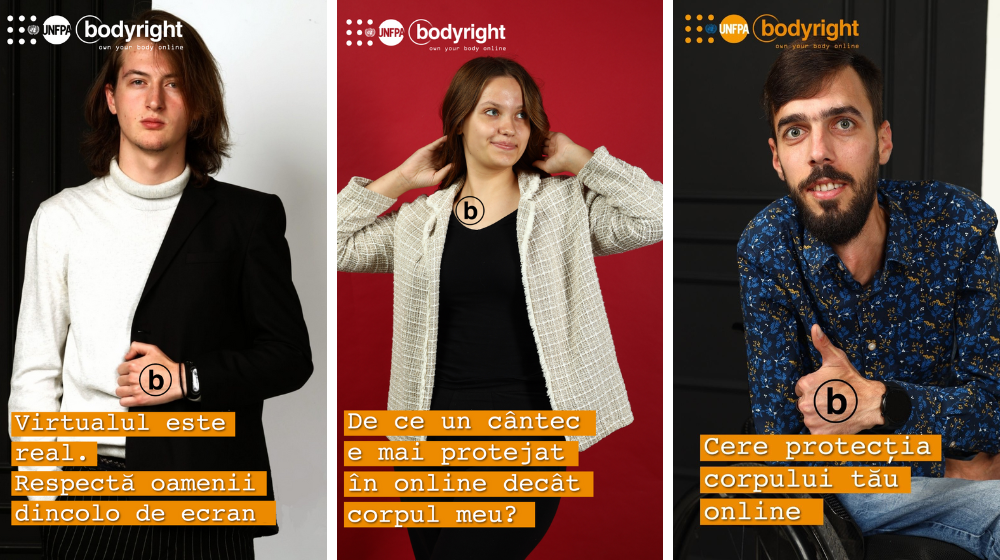
Along with other colleagues and young volunteers, she participated in the #bodyright photo session organized as part of the campaign, where influencer Cătălin Lungu was also present.
"We end up spending a significant part of our lives in the online environment, and we need to respect each other as we do in real life. The virtual space has its own limits", said Cătălin Lungu, urging young people to behave responsibly online. "No one has the right to insult or incite hatred. I urge you to pay attention to what you write and share because behind the screen, there are real people".
According to UNFPA, technology facilitated gender-based violence is a widespread phenomenon, and can take many forms such as online harassment, hate speech, doxxing, non-consensual use and dissemination of sexually explicit images online, and others.
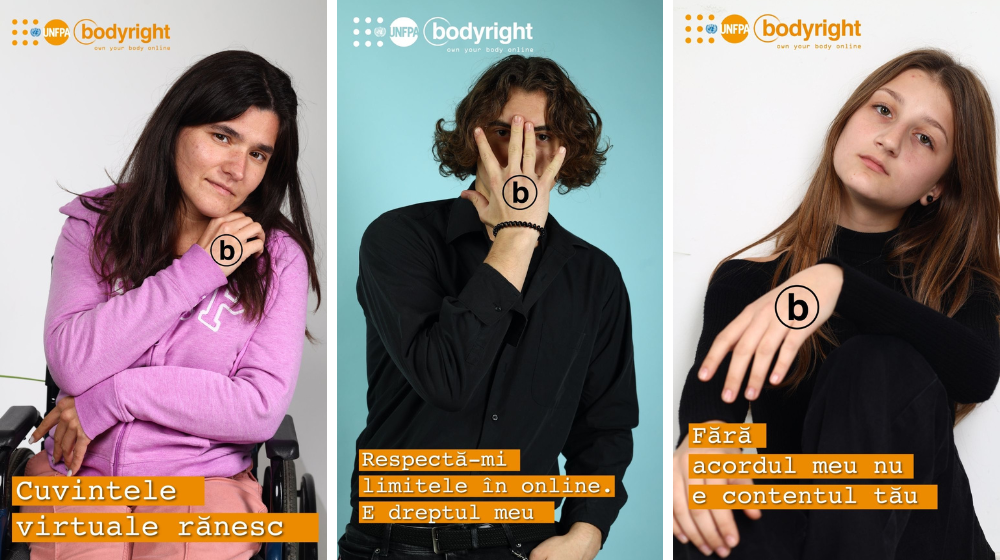
This type of violence can affect anyone using information technologies and social networks at some point, but certain groups are more exposed to this risk. This includes adolescents and young people, who spend a significant amount of their time online, as well as women activists, journalists, and politicians who are often the targets of such attacks.
A study by the International Center "La Strada" conducted in the Republic of Moldova in 2021 revealed that every second adolescent (up to 17 years old) in Moldova was a victim of online abuse. Young people reported being asked for sexually suggestive images online.
In her message at the launch event of the "Bodyright" campaign in Moldova, Elena Botezatu, Director of the "La Strada" Center, encouraged young people to stay vigilant online.
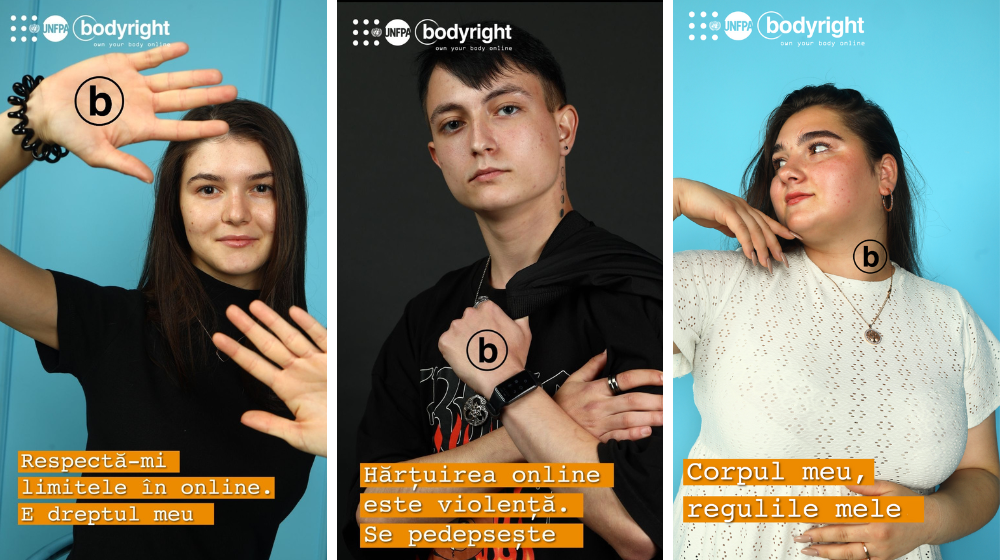
"It is normal to have boundaries, and it is very good to know them. Your boundaries must be respected, and if you are proposed to take certain actions you disagree with in your online relationships with known or unknown individuals, you can refuse. But if you still cross some boundaries, it is necessary to report because what happens online is abuse, and specialists can help you. You can call anonymously at the trusted phone number 080088008 or write on the platform siguronline.md. Your online image is your own, and no one has the right to abuse it", said Elena Botezatu.
Nicoleta Reaboi, a young volunteer at the Glodeni Youth Center and an active supporter of the #bodyright movement, confirmed that digital violence is extremely dangerous for young people today.
"You don't even realize how you become a victim of abuse. I have suffered from online violence myself due to ignorance and lack of information. That's why I want to talk about it now, so that young people can be informed and protected. I am extremely proud and grateful that I can be part of the #bodyright movement and contribute to reducing this phenomenon in our country", said the young girl.
Valentin Gherman, member of the UN Adolescents and Youth Advisory Panel, shares the same opinion. The young man confessed that he is involved as an ambassador for the 'Bodyright' campaign to increase awareness among citizens and at-risk groups. 'We live in a new reality of artificial intelligence, deep fakes, and rapidly developing, but still poorly regulated media technologies. What once seemed very distant now affects each and everyone of us. As an active young person and a citizen of the virtual world, I am aware of the increasing cases of digital violence. I believe that together we can promote the respect for everyone's rights, as well as non-violence, both physically and online," said Valentin.
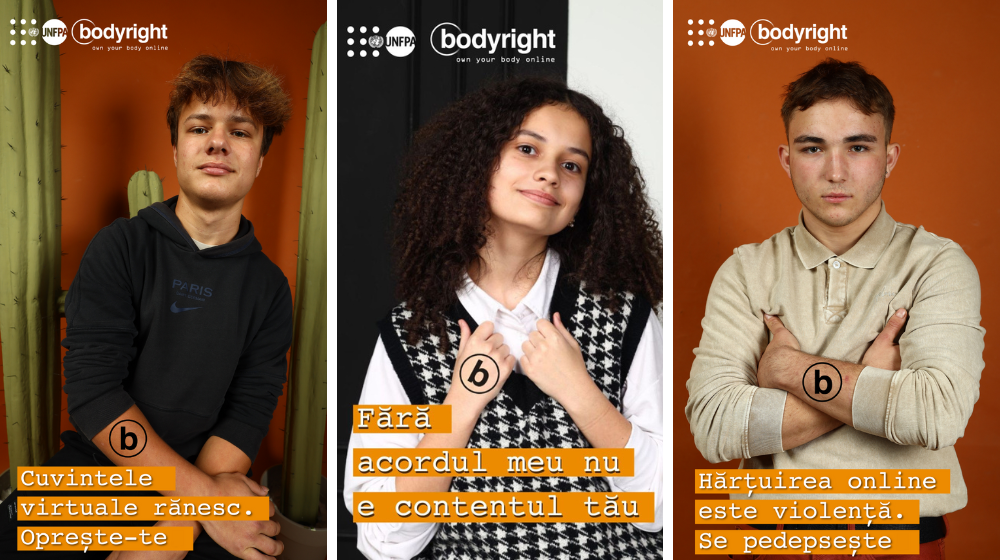
If you are facing or know someone affected by digital violence, call the emergency service 112 or the trust phone number 080088008.
Support the #bodyright movement and take a stand against online violence. Protect your body images by applying the "b" sign to photos posted on social networks. Only together can we stop violence and create a safer online environment for everyone.

